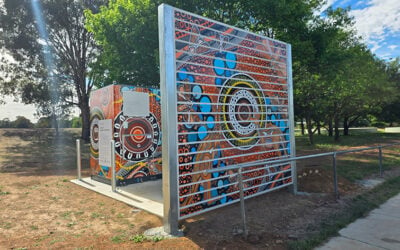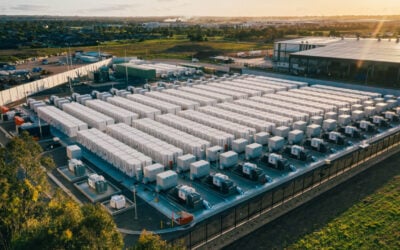Credit: Carnegie Wave Energy
Credit: Carnegie Wave Energy
An Australian island will soon host the world’s first renewable energy microgrid that integrates wave energy, solar PV and energy storage technologies.
Moreover, the combination of technologies may also allow Garden Island, off the coast of Perth in Western Australia, to be powered completely and independently by renewables for certain periods.
Perth-based firm Carnegie Wave Energy will design and build the AU$7.5 million (US$5.74 million) project, which will integrate 2MW of solar PV and a 2MW / 0.5MWh battery storage system with its CETO6 off-shore wave energy generation technology and existing desalination plant.
Try Premium for just $1
- Full premium access for the first month at only $1
- Converts to an annual rate after 30 days unless cancelled
- Cancel anytime during the trial period
Premium Benefits
- Expert industry analysis and interviews
- Digital access to PV Tech Power journal
- Exclusive event discounts
Or get the full Premium subscription right away
Or continue reading this article for free
The project is also supported by Western Power, the network operator for Western Australia. The system will allow the island’s electricity generation to work in tandem with the local network in ‘on-grid’ mode as well as independently from the gird in an ‘islanded’ mode.
How CETO works
The CETO system works under water, so it is protected from large storms and invisible from the shore, claims Carnegie.
It converts ocean wave energy into both electricity and directly desalinated water. Carnegie even claimed that the systems attract marine life.
By adding wave energy to the mix, the microgrid will benefit from seasonal variability of renewablre sources and energy profiles rising at different times of the day to help reduce the need for both diesel-based and energy storage backup power.
Carnegie’s managing director and chief executive Michael Ottaviano said, “The Garden Island Microgrid Project will be the first time anywhere in the world that wave energy will be combined with solar and batteries in a microgrid configuration.
“The demonstration of this microgrid project will help drive the commercialisation of CETO and will be a model we will roll out to island nations around the world.”
ARENA funding
The Australian Renewable Energy Agency (ARENA) has given AU$2.5 million funding to the project.
ARENA chief executive Ivor Frischknecht said: “If successful, this diverse technology system could set a great new exportable opportunity for Australia to island nations around the globe.
“With limited land available, wave energy generation supported by a reliable microgrid of battery storage and solar PV could be a better, cheaper and more sustainable way to power remote coastal or island communities long-term, displacing their reliance on diesel fuel.”
Construction on Garden Island will begin before the end of this year, and the project is expected to be commissioned by mid-2017.
Carnegie owns 35% of Australian battery and solar microgrid EPC, Energy Made Clean, with whom it partners on building mixed renewable microgrid projects to islands and remote and fringe of grid communities. Carnegie is also focussed on the UK, Europe and remote islands’ markets.
Australia’s coalition government recently secured support from the Labor Party to cut funding for the Australian Renewable Energy Agency (ARENA) from AU$1.3 billion to AU$800 million.





